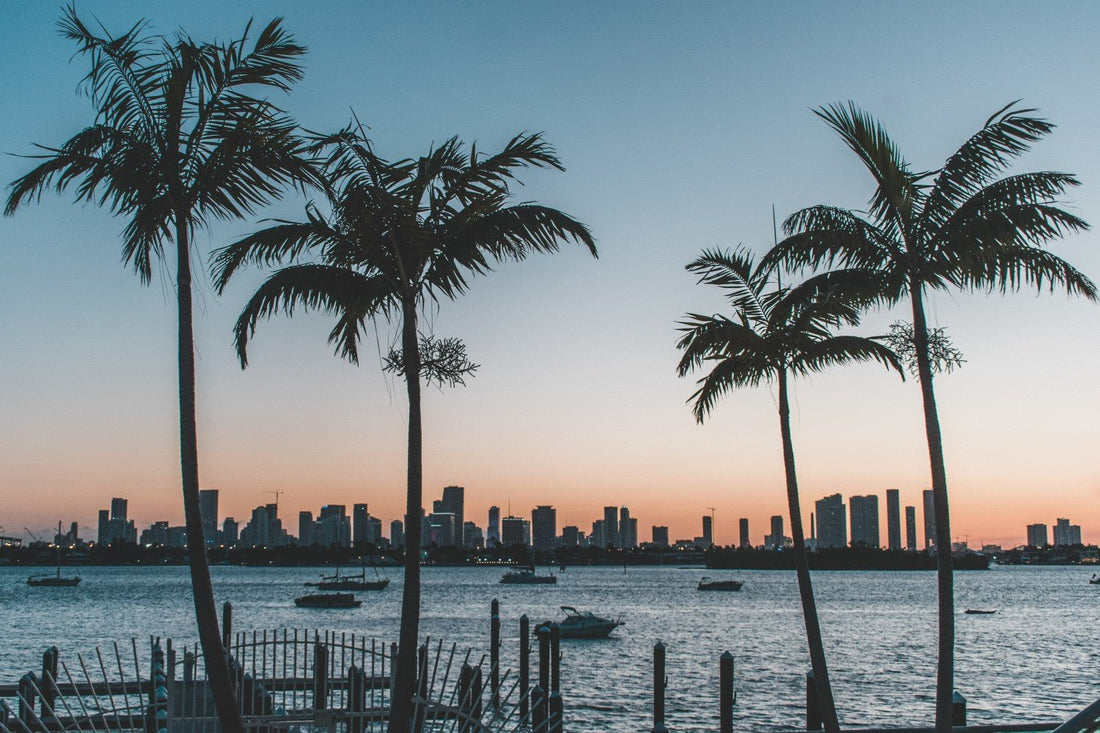For anyone interested in buying kratom in Florida, it’s vital to understand the laws surrounding this all-natural herbal substance. On a federal level, kratom is legal in the United States but it is not federally regulated. Additionally, not every state aligns with federal laws, and many have banned its use or are actively in the process of doing so. Luckily, the use of kratom is legal in most of Florida—the exception being Sarasota County.

What Is Kratom?
Kratom is an all-natural plant-based product, harvested from a tropical tree native to Southeast Asia. The leaves of this tree, called Mitragyna speciosa, are harvested to create what is commonly known as kratom. These leaves hold chemical compounds dubbed alkaloids.
Kratom Alkaloids
Alkaloids are organic compounds from plants, but some of them can be made in a laboratory. They contain nitrogen and they often result in a physiological effect on humans. There are alkaloids present in a vast array of products commonly found in your home. Alkaloids define a broad category and are not necessarily good or bad on their own. However, this can make them tricky to fully understand. The alkaloids within kratom are legal in Florida.
The two main alkaloids in kratom are mitragynine and 7-hydroxymitragynine. Mitragynine is much more prevalent in the more mature, red-veined kratom strains. 7-hydroxymitragynine, on the other hand, shows up more in less mature, white-veined kratom strains. Green-veined kratom contains the best of both worlds, as it contains a more balanced mix of both alkaloids.
Forms of Kratom
Kratom can be processed and sold in a variety of forms. Most commonly, you’ll find kratom leaves dried and crushed to be turned into a powder. You can also purchase kratom in capsule form or as an extract. Capsules are commonly made from gelatin and filled with kratom powder. Kratom extract is a liquid variety of kratom, and is considered to be a highly concentrated form. Kratom is currently legal in Florida in all of these forms.
History of Kratom in the United States
While kratom is legal on a federal level in the United States, not all American states agree. Alabama, Arkansas, Indiana, Rhode Island, Vermont, and Wisconsin all banned the product. Additionally, a handful of cities and counties within legal states have banned kratom as well. According to a 2021 statement by the American Kratom Association, an estimated 11 to 16 million people use kratom in the United States. Florida is among the list of states in which kratom is legal.
Confusion Around Kratom
Kratom experienced a rapid rise in popularity in the United States between 2011 and 2017, which garnered more national attention. However, misconceptions about what kratom exactly is has led to a nationwide debate over its legality.
Multiple states have banned kratom, citing within the law itself that kratom is a synthetic cannabinoid. To be clear, kratom is not related to any cannabis product. It is harvested directly from the leaves of a kratom tree, and is in its own category. In Florida, kratom is not legal in Sarasota County because they believed kratom to be similar to bath salts, despite that claim being entirely false.
Regulation of Kratom
Kratom is not controlled under the Controlled Substances Act, and is not federally regulated. Some states have banned its possession and/or use, and the DEA has stated its concern about kratom. This is because the claims surrounding kratom, both positive and negative, are largely unexplored.
For example, researchers at the University of Florida College of Pharmacy received grants to study kratom more in-depth to provide more information for those interested in kratom. One particular question they seek to answer is how we can better ensure kratom is fully understood by those purchasing it by studying the culture surrounding kratom in Southeast Asia, where it is native.
Since kratom is not federally regulated, it’s vital to be smart about where you purchase kratom. As a plant-based substance, kratom can have issues such as mold, bacteria, e coli, and more. Third-party, independent laboratory testing ensures that the kratom you buy will be safe. Moreover, lab testing will also provide an alkaloid profile, so you can be aware of exactly what you’re paying for. Because of this, it is often safer to buy kratom online from an accredited vendor that follows GMP standards.
Kratom in Florida
As of now, kratom is legal in Florida. However, Sarasota County has banned kratom since 2014. This is because the county did not understand what exactly kratom is. That being said, it is important to follow the laws and regulations surrounding kratom if you live somewhere that has them.
Current Status
As of now, the state law says that it is legal to buy kratom in Florida, no matter their age. Many local businesses, however, impose age limits of their own accord. These limits often begin at age eighteen or age twenty-one. However, there are no limits on alkaloid levels of kratom products in the state. As kratom is currently unregulated, vendors also do not have to register their products with the state of Florida.
The Future of Kratom in Florida
Very recently, Florida legislators have proposed new bills that would provide some regulation to kratom within the state. The use of kratom in Florida is not up for debate—these new bills would simply regulate its sale to make sure it’s legitimized for everyone involved. Many of these proposed regulations stem from efforts made by the American Kratom Association, which is very pro-kratom.
For starters, the new regulations would instill a set age limit for who can purchase kratom and kratom products containing excess levels of 7-hydroxymitragynine would be prohibited. Most importantly, the Florida Department of Agriculture and Consumer Services would be granted the authority to regulate legal kratom in the state.

